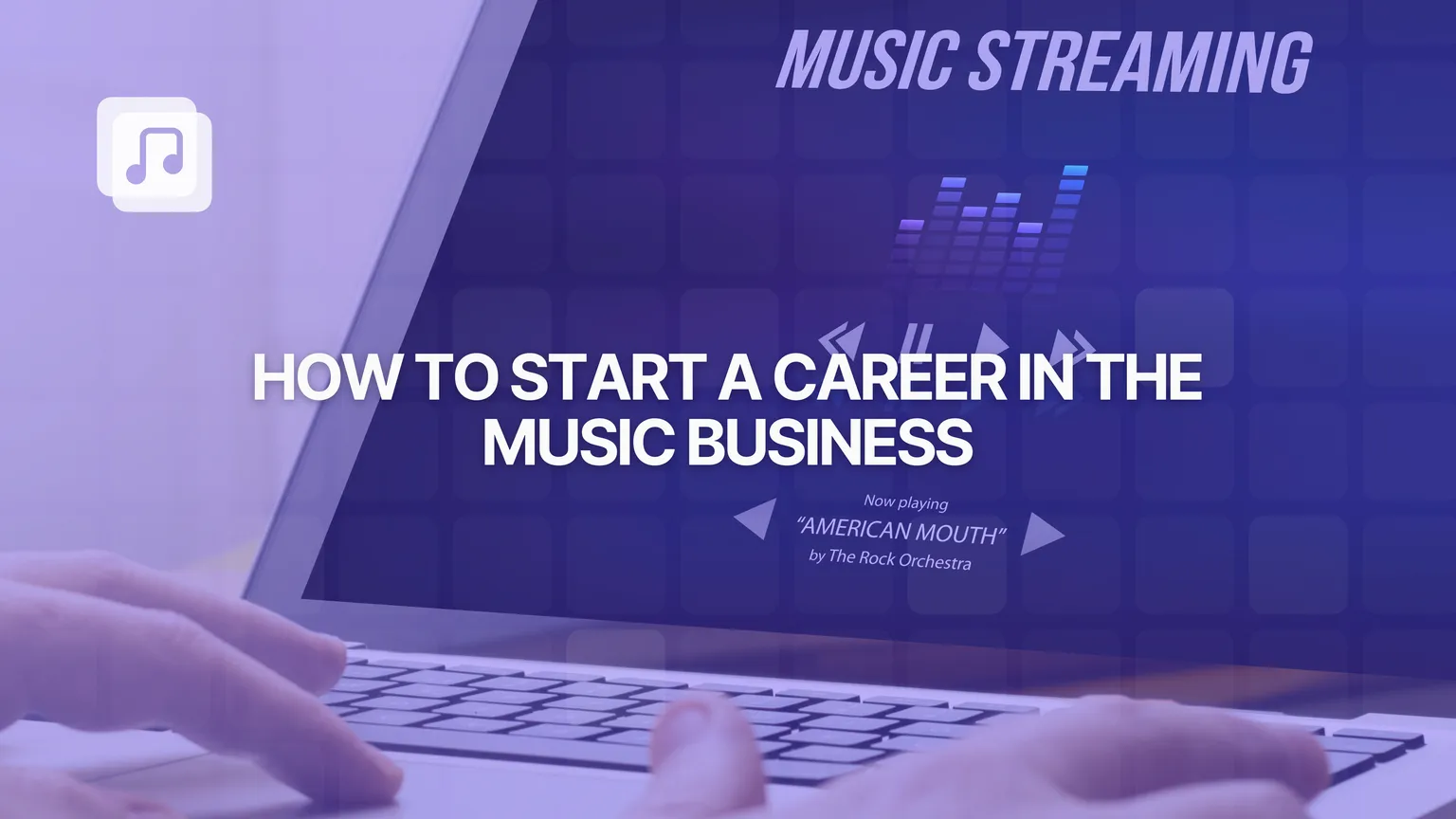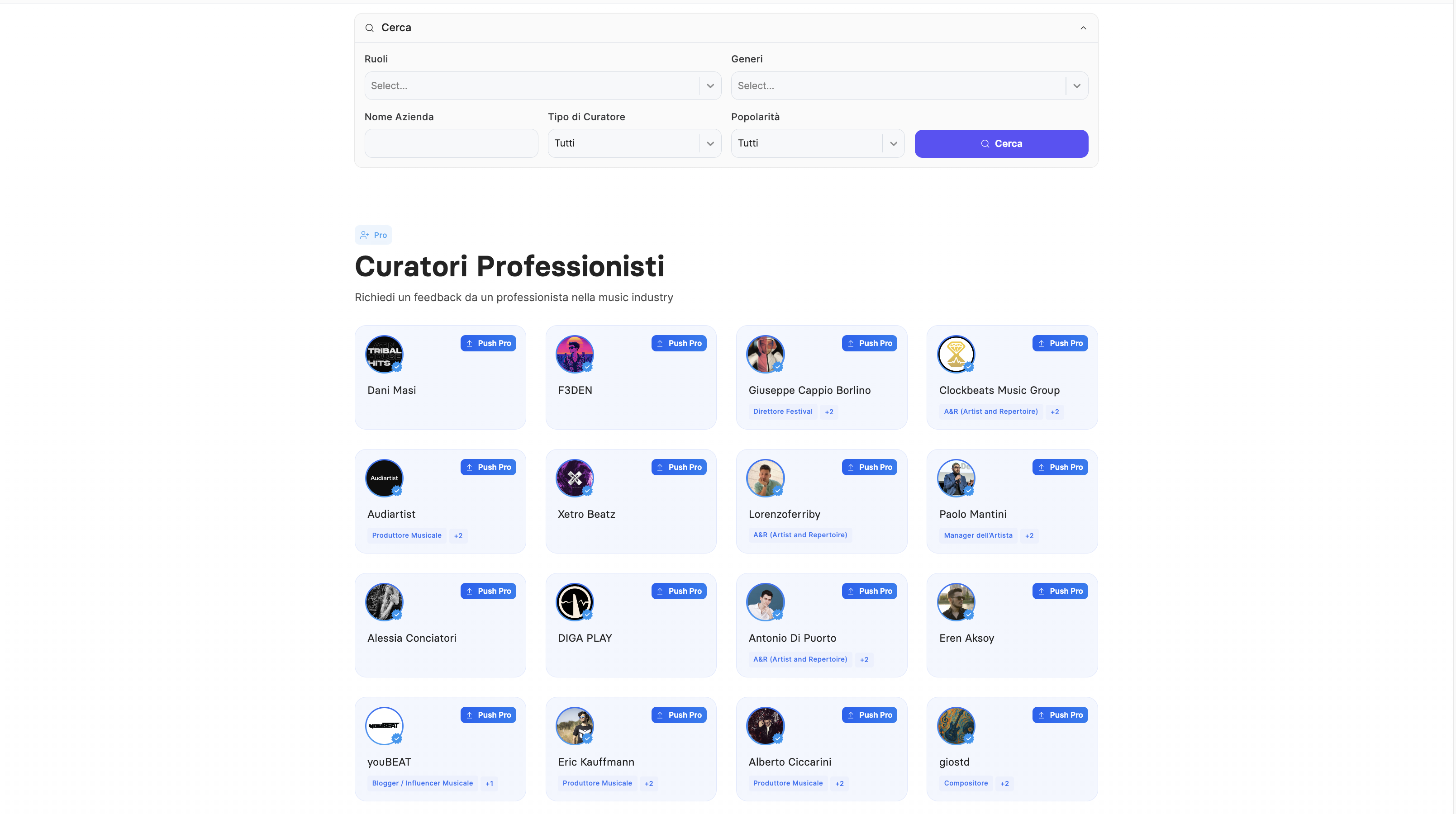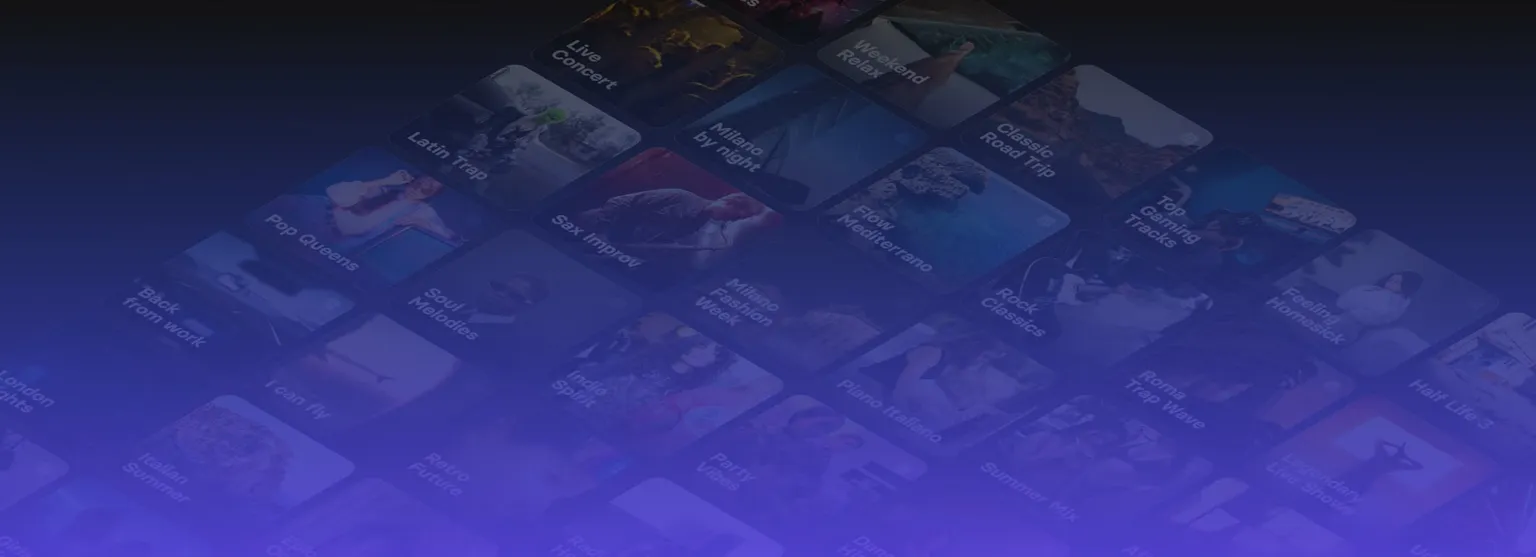How to start a career in the music business: a practical guide to break into the industry

Getting your foot in the door of the music industry can feel overwhelming. While it might seem like talent alone should be enough, the truth is that many skilled individuals never get the opportunity they deserve. Success often depends on being in the right place at the right time, knowing the right people, and having a deep understanding of how the business side of music works.
If your dream is to work behind the scenes in music: whether in artist management, marketing, publishing, A&R (Artists and Repertoire), or label operations, the path to getting there requires a combination of strategy, persistence, skill-building, and connection-making. This guide will walk you through the most effective steps to break into the business side of the music industry and start building a meaningful and sustainable career.
Here's what we're going to explore:
- Real world experience in the industry
- networking in the music scene
- Collaboration with emerging artists
- Strong online presence
- Learn music industry's fundamentals
- The legal side of music
1. Gain real-world experience in the industry
One of the most valuable things you can do to break into the music business is to get hands-on experience. That might mean starting small: working as an intern at a local record label, volunteering to help at live shows, or assisting with an artist’s social media strategy.
Even seemingly minor tasks can provide key insights into how the industry operates. Are you helping run a merch table at a concert? You’re learning about fan engagement and sales. Supporting a music studio or helping plan a release? You’re gaining exposure to timelines, deliverables, and marketing efforts.
Look for opportunities at local indie labels, artist collectives, music venues, or media outlets. Many professionals in the industry started out doing unpaid or low-paying roles just to get in the room and soak up knowledge. What matters most is showing your willingness to learn and contribute.
Tip: Document your contributions. Whether you're organizing a playlist, managing a tour schedule, or helping with distribution, build a portfolio you can show to future collaborators or employers.
2. Build a strong network in the music scene
In the music industry, relationships can be just as important as experience. One of the most effective ways to advance is by building a strong, supportive network of professionals who can offer advice, make introductions, or bring you onto new projects.
Start by attending industry events such as music conferences, listening parties, label showcases, or networking nights. These are fantastic places to meet managers, producers, artists, promoters, and other industry professionals. Introduce yourself genuinely, follow up with a message afterward, and keep the connection alive.
If in-person events aren’t accessible, join online communities. There are thriving Discord servers, Reddit threads, and Facebook groups dedicated to music careers. LinkedIn is also a powerful tool if you treat it like an industry directory, not just a resume.
Networking is not just about asking for favors — it’s about creating mutual value. Help others with their projects, offer your skills, and be open to collaboration.
Did you know that Matchfy gives users the chance to connect directly with music industry professionals to get feedback on their music? This is made possible through Matchfy Pro, which allows you to send your track straight to industry experts, receive valuable insights, and build new connections within the music business, all while increasing your chances of landing exciting opportunities!

3. Collaborate with emerging artists
Working with up-and-coming musicians is a great way to gain visibility and credibility in the music business. When you team up with an artist who’s still building their career, you often get the chance to play a more meaningful role: managing their releases, helping plan promotional campaigns, or even contributing to branding and content strategies.
These collaborations can be mutually beneficial: the artist benefits from your support, and you gain real-world experience while developing a professional track record. You may even grow together, turning those early efforts into long-term partnerships.
Keep your eye on local showcases, open mic nights, or music school showcases. Many talented acts are looking for people to help with management, PR, or bookings and you could be the right fit.
Create a solid social media campaign can be a game changer for emerging artists, discover the best social media campaigns of 2025 by reading the full article on our blog!
4. Build a strong online presence
In today’s digital-first music industry, your online presence matters and it can be a powerful tool for attracting opportunities. Whether you want to work in A&R, marketing, label services, or creative strategy, having a professional digital footprint will make it easier for people to find and trust you.
Create a portfolio website that highlights your background, skills, and past projects. If you're not a fan of traditional resumes, consider building an EPK (Electronic Press Kit) that lays out your work in a visually engaging way. Make sure your LinkedIn profile is up to date and showcases your interests in music, not just your job history.
Also, don’t underestimate the power of platforms like Instagram, YouTube, TikTok, and even Twitter (X). These channels let you connect with others in the scene, share what you’re working on, and establish a recognizable voice.
Pro tip: Start posting insights, project updates, and resources related to music industry topics. It helps position you as someone informed and engaged with the business of music.
Don't you know how to create an EPK in the best way possible? We got you: we created an entire guide on how to create it and you can find it on our blog!
5. Learn the fundamentals of the music industry
Breaking into music is easier when you understand how it really works behind the scenes. While passion and creativity are key, having a strong grasp of music industry basics like royalties, publishing rights, digital distribution, and promotional strategies can set you apart from the crowd.
There are many ways to build this knowledge: take online courses, attend webinars, or enroll in short-term programs focused on the business of music. Institutions like Berklee Online, Coursera, and the Notting Hill Academy of Music offer excellent training programs tailored to different career goals in the industry.
You don’t need to spend years studying, but even a few focused months of learning can give you the vocabulary and confidence you need when talking to industry professionals or negotiating deals.

6. Understand the legal side of music
You don’t need to become an entertainment lawyer, but you do need to understand the basics of music law. If you plan to work in management, A&R, publishing, or artist development, being able to read and interpret contracts is an incredibly valuable skill.
Take the time to learn about common music agreements — such as publishing deals, licensing agreements, distribution contracts, and sync placements. Knowing what to look out for (like unfavorable splits or long-term exclusivity clauses) can protect both you and the artists you work with.
Having even a basic understanding of intellectual property rights and revenue streams makes you more capable and trustworthy in professional settings.
Remember: In music, knowledge is power — especially when money and rights are on the line.
Your journey into the music industry starts with action
Breaking into the business side of the music industry is no easy feat but it’s absolutely possible with the right mindset, strategy, and consistent effort. Whether you’re dreaming of managing artists, joining a label team, diving into publishing, or becoming the next go-to A&R, the path forward isn’t about waiting for a lucky break. It’s about creating your own opportunities through action and intention.
And remember: in an industry as fast-paced and ever-changing as music, staying visible and connected is essential. Tools like Matchfy Pro are helping bridge the gap between creators and industry professionals, giving you the chance to share your work, get expert feedback, and take your career to the next level. Don’t miss out on resources like these they could be the turning point you’re looking for.

